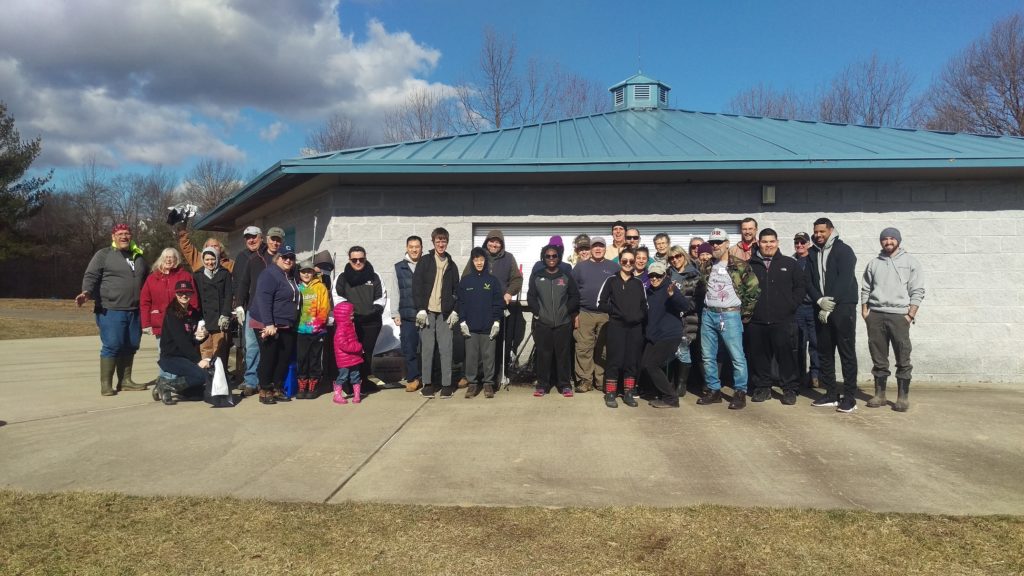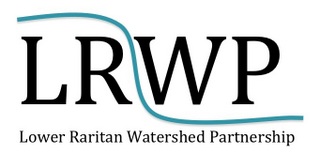Enjoy Nature While Nurturing It: Clean Up Edition
Article by Caleigh Holland, written as part of the Rutgers Spring Semester 2019 Environmental Communications course
It is no secret that pollution is a problem in our oceans; we know that plastic bags and straws are killing sea creatures. However, the public is not always as aware of the pollution in local rivers and the consequential damage it is costing us and the environment. The Raritan River is unfortunately full of garbage from littering and industrial facilities, as well as polluted by raw sewage. How can you as the public help an issue that impacts your drinking water, local wildlife, transportation, and recreational activities? An opportunity to aid in the health of our environment is to participate in a river clean up. This weekend activity or weekday afternoon would allow you to not only enjoy the outdoors, but bond with a group of people that share the same goal.

Who can join in a clean up?
The Lower Raritan Watershed Partnership (LRWP) is happy to have volunteers join them for service; you can connect with them through their website to find clean-up opportunities, or to share ideas for clean-up locations. Participating in a stream or river clean-up is a great community-building activity for groups of all sorts. Faith-based groups, Rutgers environmental and outdoor clubs, and local charities can sign up to help out. In addition to the LRWP, several other local organizations regularly host clean ups, and organizations like American Rivers help groups schedule river clean ups and offer advice to the public on how to create a successful event.
What are the safety precautions for the river clean ups?
For most clean-ups protective gloves are provided.
Participants should ensure that they have proper footwear, clothing for the season, bug repellent, hydration, and snacks.
The LRWP asks that volunteers leave glass, weapons, and drug paraphernalia where it is, and that they let a clean-up coordinator know about those and any other dangerous items.
Individuals under 18 need a parent’s signature to participate in formal clean-ups, and for every five youths under 12 one adult must be present.
Why we should clean up the river
There is a considerable amount of pollution in the Raritan River from a number of different sources. One kind of pollution of concern is microplastics, which are any pieces of plastic smaller than 5 millimeters. Microplastics are either created from the breakdown of larger pieces of plastic, are by-products of plastics production, or are used in products such as toothpaste or cosmetics. Researchers from Rutgers University have shown a high concentration of microplastics in local waters water.
Any plastic that is allowed to wash into the river such as through storm drains can easily end up in the water and over time will wear down and distribute itself throughout the river’s waters. If freshwater animals eat the microplastics found in the water and then humans eat the aquatic animals, there is growing research that suggests that the ingestion of plastics can lead to changes in our chromosomes which could lead to obesity, cancer, and infertility. There are potentially several health consequences to the public if we don’t clean up the Raritan River.
How much of a difference can you make cleaning up the river?
Although it may seem like a lost cause when you hear about the amount of pollution already in the river, a little goes a long way in terms of clearing the water of garbage. Over 20 years, the town of Manchester, NJ organized over 116 clean-up events with more than 1000 volunteers. In less than two decades they managed to collect 2,394 bags of trash which amounts to $78,000 in volunteer donation time. Organizations like the LRWP are trying to do the same along the banks of the old Raritan.
How can we clean up when there is no event scheduled?
A clean river starts with your daily routine. Recycle rather than throw out your garbage. Recycle your plastic shopping bags at local grocery stores. When you walk or jog outside, pick up garbage as you go. “Plogging” – picking up litter while jogging – is a way for you not only to promote a healthy lifestyle for yourself, but for the environment too. You don’t need to jump right in and get your feet wet—you can help the river by thinking more consciously about your own behaviors at home, at work, and in your community.
Effective communication about the environment is critical to raising awareness and influencing the public’s response and concern about the environment. The course Environmental Communication (11:374:325), taught by Dr. Mary Nucci of the Department of Human Ecology at Rutgers University, focuses on improving student’s writing and speaking skills while introducing students to using communication as a tool for environmental change. Students not only spend time in class being exposed to content about environmental communication, but also meet with communicators from a range of local environmental organizations to understand the issues they face in communicating about the environment. In 2019, the course applied their knowledge to creating blogs for their “client,” the Lower Raritan Watershed Partnership (LRWP). Under the guidance of LRWP Founder, Dr. Heather Fenyk, students in the course researched topics about water quality and recreation along the Raritan. Throughout 2020 the LRWP will share student work on our website.
